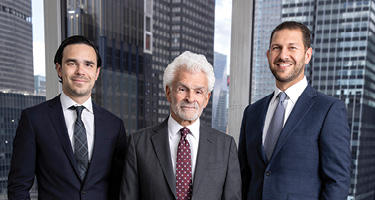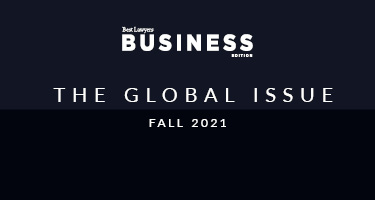WHEN MY CHILDREN were younger and would misbehave, I’d sit them down and explain why what they did was wrong and what our expectations were for acceptable behavior going forward. Sometimes they’d describe this to their mother as “Dad yelled at us.” My typical response: “No, I didn’t yell at you—I just told you something you don’t want to hear.”
I often think about this when dealing with workplace retaliation claims, which frequently involve perception attempting to take precedence over reality. Whenever someone claims to have experienced retaliation, I’m reminded of the famous line of Inigo Montoya (Mandy Patinkin) in The Princess Bride: “You keep using that word. I do not think it means what you think it means.”
What I mean is that many people use “retaliation” to describe a situation in which someone—usually a supervisor or manager—tells them something they don’t want to hear. Because courts analyze employment retaliation claims a bit differently than employment discrimination claims, I’ve found it’s important for employers to be aware of the applicable legal standards to try to minimize, if not eliminate, the possibility of such claims.
The first and perhaps most important principle is that employment discrimination statutes only prohibit retaliation for engaging in protected activity. For example, Title VII of the Civil Rights Act of 1964 prohibits retaliation against an employee or applicant “because he has opposed any practice made an unlawful employment practice by this [law], or because he has made a charge, testified, assisted or participated in any manner in an investigation, proceeding or hearing” under the law. As a result, the individual must engage in one of these actions to trigger its antiretaliation protections.
Many people use 'retaliation' to describe a situation in which someone—usually a supervisor or manager—tells them something they don’t want to hear."
In addition, a complaint about an employment practice constitutes protected opposition only if the individual explicitly or implicitly communicates a belief that the practice constitutes unlawful employment discrimination. This is because unfair treatment—absent discrimination based on race, sex, national origin or another protected characteristic—is not an unlawful employment practice. It is not enough for the employee merely to complain about a certain policy or certain behavior of coworkers. Rather, the individual must communicate a belief that unlawful discrimination is occurring. Similarly, the mere fact that the complainant and the alleged bad actor are members of different races, sexes or national origins does not establish discrimination.
This is because, as courts routinely remind litigants, Title VII and other antidiscrimination statutes prohibit only discrimination, not unfair treatment. They are not “general civility codes.” Discrimination because of race, sex, national origin and other protected characteristics is outlawed; personality conflicts, bad managerial decisions and unfair treatment that aren’t based on protected characteristics are not.
As one federal court noted, “Federal courts do not sit as a super–personnel department that reexamines an entity’s business decisions. No matter how medieval a firm’s practices, no matter how high-handed its decisional process, no matter how mistaken the firm’s managers, the [law] does not interfere.” Or, as my parents told me growing up, “Life sometimes isn’t fair.” Simply because something makes an employee upset in the workplace doesn’t mean it’s discrimination or retaliation.
The other frequent scenario in retaliation cases is the individual who, after filing a complaint, thinks that he or she is immune from criticism because of it. This is inaccurate. The complainant still has to do his or her job; again, the law prohibits retaliation only because of the complaint. It does not prohibit the employer from continuing to hold the individual to the same standards that applied before the complaint and to which all other employees are subject. Simply put, the law prohibits singling out the complainant for discipline or discharge because they complained; the complaint does not entitle them to preferential treatment.
As one judge wrote in a legal decision dismissing a retaliation claim, “Protection from retaliation for filing a complaint does not clothe the complainant with immunity for past and present inadequacies, unsatisfactory performance and uncivil conduct in dealing with subordinates and with his peers.”
Most U.S. workers are employed on an at-will basis, meaning they can quit or be fired without cause and without notice. Despite this, where an individual has engaged in protected activity under applicable antidiscrimination laws by making a complaint or participating in an investigation (such as being interviewed during an internal or external investigation), I encourage clients to examine whether it has legitimate, nonretaliatory reasons for the proposed discipline or discharge. Critical to this analysis is whether the employer applies these rules and penalties evenhandedly. If the employer treated other employees who exhibited the same performance deficiencies differently, that tends to undermine the existence of a legitimate, nonretaliatory reason.
These laws were enacted to ensure that employment decisions are made based on legitimate, nondiscriminatory, nonretaliatory factors, and not on people’s race, sex, national origin or other protected characteristics. But they were not meant to be abused by the underperforming employee who, just before termination, files a discrimination complaint in an attempt to stave off discipline or discharge.
As one court noted, “[W]ere the rule otherwise, then a disgruntled employee, no matter how poor his performance or how contemptuous his attitude toward his supervisors, could effectively inhibit a well-deserved discharge by merely filing, or threatening to file, a discrimination complaint.” That certainly is not the purpose of these laws.
Employees and employers in retaliation scenarios would be better served if they moved past the perception and focused instead on the reality: What exactly is the employee complaining about? What is the employer action at issue? Are there legitimate reasons for that action? These factual questions should clarify whether the alleged “retaliation” means what we think it means.
Matthew T. Gomes is a partner in the Atlanta office of Weinberg Wheeler Hudgins Gunn & Dial. His practice focuses on labor and employment law, commercial litigation, class actions and special matters and investigations.
































